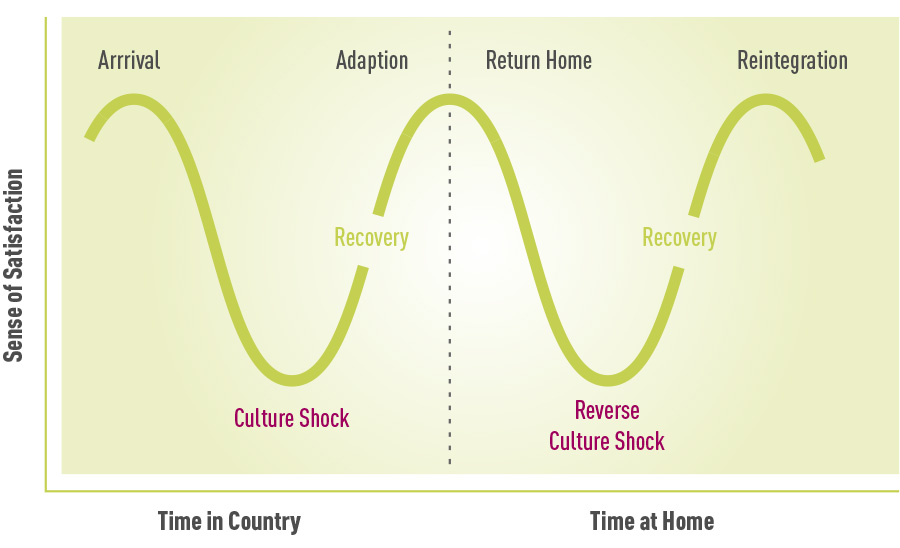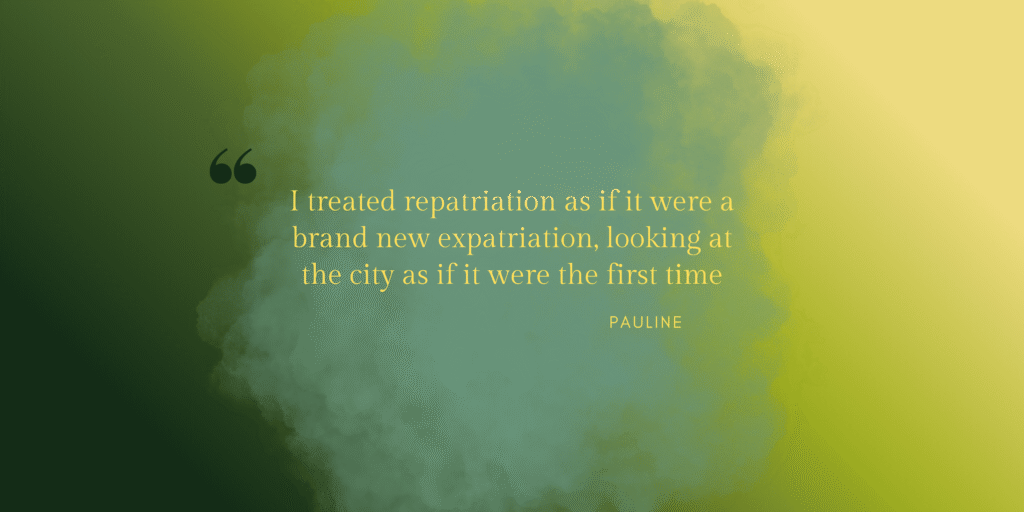Being an expat is an exhilarating journey that exposes you to new cultures, languages, and experiences.’s a time of growth, learning, and adaptation. But what happens when the adventure comes full circle, and it’s time to return to your home country? Many expats find themselves facing a phenomenon known as reverse culture shock.
What is reverse culture shock?
Reverse culture shock is an emotional shift experienced by expats returning home after a long time abroad. It’s this feeling of not fitting in in the place that was previously your home. It can catch even the most seasoned expats off guard, as readjusting to the familiar can be as challenging as adapting to the unfamiliar.
Reverse culture shock is the emotional and psychological turbulence experienced when returning to one’s home country after an extended period abroad.
To many, this may come as a surprise, but returning home after a long period abroad is not as easy as it sounds. You are going back to a home and environment that has evolved without you, and you also will be coming back a different person, having grown from your experiences elsewhere.

Manage the emotional turmoil of Reverse Culture Shock
If you’re an expat looking at returning home or already grappling with the effects of reverse culture shock, here are some tips and strategies to help you manage this transition.
- Acknowledge Your Feelings: Understand that feeling out of place or disconnected upon returning home is entirely normal. Acknowledging and accepting these emotions is the first step in coping with reverse culture shock.
- Reflect on Your Experience: Take time to reflect on your time abroad. What did you learn? How did it change you? Embrace the positive aspects of your expat journey and integrate those lessons into your life back home.
- Be Patient with Yourself: Adjusting to life back home is a process that takes time. Don’t rush yourself or expect to feel completely settled right away. Allow yourself to feel the ups and downs without judgment.
- Seek Support: If you find yourself struggling to readjust, consider seeking professional help or joining support groups. Therapists specializing in expat transitions or cultural adjustment can provide valuable guidance.
Tips to regain energy and feel at home
- Stay Connected: Maintain ties with the expat community and friends you’ve made abroad. Share your experiences and feelings with fellow expats who can relate. Engaging with others who understand what you’re going through can provide immense comfort and support.
- Ease into Routine: Re-establishing routines can help create a sense of stability. Start by incorporating familiar activities gradually while allowing yourself time to adjust. This might include revisiting favorite spots, reconnecting with old friends, or picking up hobbies.
- Celebrate Similarities and Differences: Embrace the aspects of your home country that you missed while abroad, but also cherish the new perspectives you’ve gained. Finding a balance between your old and new experiences can ease the transition.

- Stay Curious: Maintain an open mind and a curious spirit. Approach your home country with fresh eyes, noticing changes and developments that occurred while you were away. Embrace opportunities for continued growth and learning, treat it as if it were a new expatriation.
- Accept friendships have evolved, find what works for you. You may feel disconnected in your old friendships, like you have grown apart while you were abroad. Accept the friendship has evolved, and create new connections where you need through passions and interest.
Remember, the experience of reverse culture shock is unique to each individual. Some may find the transition relatively smooth, while others may face more significant challenges. The key is to be patient, kind to yourself, and seek support when needed.
In conclusion, reverse culture shock is a natural part of the expat experience. By acknowledging your feelings, staying connected, reflecting on your journey, and being patient with yourself, you can navigate this phase with resilience and a newfound appreciation for both your home country and the world you’ve explored.
So, to all expats out there, embrace the rollercoaster of emotions, lean on your support network, and remember that this period of adjustment will eventually lead to a deeper understanding of yourself and the world around you. Welcome home!
Stay tuned for more insights and stories from Meet the Expats, where the expat community comes together to share experiences and support each other on this incredible journey called life abroad.



Leave a Reply